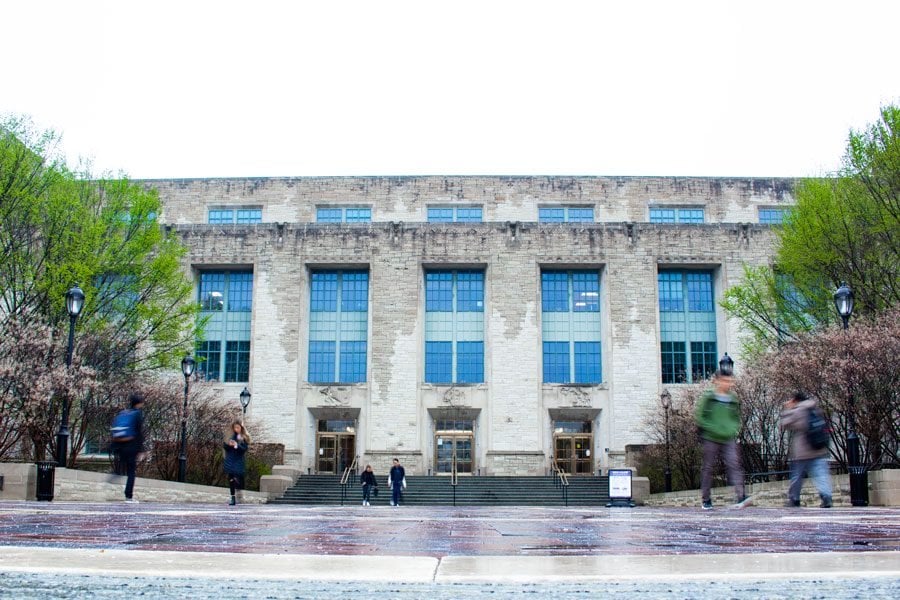Northwestern’s Center for Molecular Quantum Transduction receives $12.4 million in research funding
Daily file photo by Evan Robinson-Johnson
The Technological Institute. Northwestern’s Center for Molecular Quantum Transduction recently received $12.4 million to carry out their research initiative on quantum transduction for the next four years. The center will officially begin its research Aug. 1.
July 23, 2020
The U.S. Department of Energy’s Basic Energy Sciences program recently selected Northwestern’s Center for Molecular Quantum Transduction to receive $12.4 million in funding as an Energy Frontier Research Center. The funding will support a four-year enterprise beginning Aug. 1.
The CMQT is a new research initiative created to help better understand quantum transduction, which is the process of converting quantum signals from one form of energy to another. The center is directed by chemistry Prof. Michael Wasielewski, who is also the executive director of the Institute for Sustainability and Energy at Northwestern.
“We are entering an age where quantum phenomena are going to impact computing, sensing and communications,” Wasielewski said. “So in order to connect those, you need to be able to transduce or change the information from one form into another seamlessly.”
Wasielewski added that he is excited for the future of CMQT, as it is an opportunity to make new advances in the field of quantum transduction.
“The program is very exciting because it’s a very, very fast-moving field,” Wasielewski said. “We’re all excited about exploiting our knowledge and expertise to move this important field forward because we’re going to see some of these new ideas and new techniques end up being applications and entering the technological realm in the next few years.”
There are a total of 17 principal investigators from eight academic institutions who will conduct CMQT research, and the center has three research thrusts that each approach quantum transduction from a different perspective. Although each thrust has a different goal regarding transduction, they all “come together in a unified picture,” said CMQT Deputy Director and chemistry Prof. Danna Freedman.
One of these approaches is taking mechanical motions and connecting them to spin, Freedman said. Freedman added that another approach is taking magnons, which can be thought of as a “wave of rotating spins,” and transducing those to spin or connecting them to light.
“These switches where we switch one thing into another (are) the core goal of the proposal, and effectively, each of these different directions has different elements and different specific goals, and they all come together,” Freedman said.
Each of the principal investigators involved in CMQT have their own research projects that are related to quantum transduction, and they all collaborate with each other across departments and institutions. The researchers at Northwestern are mostly from the chemistry department, and physics and astronomy Prof. Nathaniel Stern is the only Northwestern faculty member in the center from his department.
Stern said although the professors involved in CMQT are from many different institutions and departments, the nature of the center is highly collaborative.
“This center involves seven or eight institutions with experts from each of them, bringing something new to this team,” Stern said. “Even though the heart of the team is this team of chemists that are bringing this molecular perspective, the diversity of the team is also impressive in the number of physicists that are coming in to try and do quantum information, which is a molecular system.”
Email: [email protected]
Twitter: @vivianxia7












